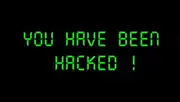Two million Facebook, G-mail and Twitter passwords hacked!
Hackers have done it again! According to a new report, two million passwords for social media and email accounts have been stolen by hackers. The passwords for the compromised accounts are discovered to be collected by a botnet which uses infectious software to take note of the keystrokes of its targets.
Thousands of Facebook, Google, Yahoo, Twitter and LinkedIn accounts were hacked with details published online. It is believed that this has been done by cyber criminals. There were 318,000 Facebook passwords, 70,000 Google (including G-mail, Google+ and YouTube), and 60,000 Yahoo accounts.Pony steals passwords that are stored on the infected users’ computers as well as by capturing them when they are used to log into web services.”

Important Facts
“While details of this case are not yet clear, it appears that people’s computers may have been attacked by hackers using malware to scrape information directly from their web browsers,” said a Facebook spokesperson.
It is said that most of the compromised passwords were weak to begin with. The most popular stolen password was “123456,” followed closely by “123456789,” “1234” and “password.”
 Based on geo-location statistics it is found, that most affected users were in the Netherlands. But a closer look reveals the more likely scenario: a single Netherlands IP address was used as a “reverse proxy” between the infected computers and the server, a technique commonly used to prevent the server from being found and disabled.
Based on geo-location statistics it is found, that most affected users were in the Netherlands. But a closer look reveals the more likely scenario: a single Netherlands IP address was used as a “reverse proxy” between the infected computers and the server, a technique commonly used to prevent the server from being found and disabled.
Because the stolen log-in information wasn’t posted online, services which typically offer a tool to see if accounts have been compromised — are unable to do so for this breach. Instead, it is advised that everyone should use unique, strong passwords for all online accounts.
Well it is clear that if you use the same password on Facebook as you do for your online banking, that is a massive risk and you should update your accounts immediately. And if your accounts have so many threats around it is always preferable to have backup of your email data.

